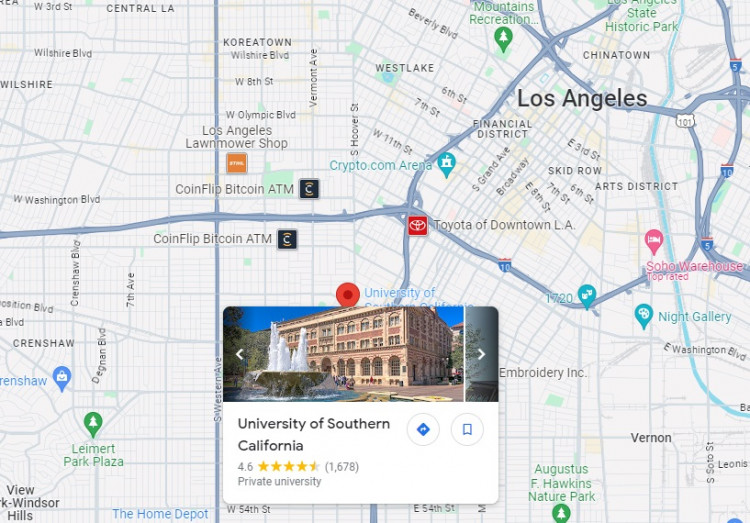The University of Southern California (USC) finds itself embroiled in controversy after the administration's decision to revoke a speaking slot for Muslim valedictorian Asna Tabassum, citing unspecified threats to campus safety. The move, intended to cool tensions that have roiled the campus throughout the Israel-Hamas war, has instead ignited a firestorm of criticism, with accusations of stifling free speech, antisemitism, and anti-Muslim and anti-Arab hate.
Protesters gathered by the landmark Tommy Trojan statue on Wednesday, with some calling on USC President Carol Folt to reverse course as arguments broke out between those on opposing sides. Dozens of student groups have signed a letter to administrators, expressing their outrage and shame at the university's decision. More than 130 faculty members have also penned a letter to Folt, asserting that her move "stifles open communication."
Tabassum, a biomedical engineering major with a minor in resistance to genocide, was chosen as valedictorian from a pool of nearly 100 applicants with GPAs of 3.98 or above. The title comes with an invitation to deliver a 3-to-5-minute speech to an audience of about 65,000 at the campuswide commencement ceremony on May 10. However, pro-Israel groups labeled her antisemitic because of anti-Israel content on a website linked to her Instagram profile and demanded that she not be allowed to speak or be named valedictorian.
In response to the controversy, Provost Andrew Guzman addressed a monthly Academic Senate faculty meeting, stating that the decision was not the administration's "first choice" but that he had "a high degree of comfort" with it. The university has referred questions about security to Erroll Southers, USC's associate senior vice president for safety and risk assurance, who declined an interview request.
The cancellation of Tabassum's speech has left many Muslim students feeling disillusioned and marginalized. Abdullah Khlefat, a USC student, said that Tabassum's selection as valedictorian had shown him that "our people have a voice on campus." Another student, Layan, expressed her crushed dreams, saying, "For a sliver of a moment, I had a sense of hope. I felt like one day I could be like Asna."
Critics of the university's decision argue that USC is using security concerns as a pretext to silence Tabassum. First-year student Danica Gonzalez pointed to last year's commencement, which former President Barack Obama and his wife, Michelle, attended when their daughter Sasha graduated, as evidence that the university has the capacity to protect speakers if it chooses to do so.
The controversy has exposed deep divisions on campus, with some Jewish students and faculty members expressing support for Tabassum's right to speak, while others argue that her alleged promotion of antisemitism makes her unfit to represent the graduating class. Rabbi Dov Wagner, who leads the Chabad Jewish center at USC, acknowledged that the university was in an "impossible situation" but criticized its handling of the controversy as "unfair to everyone."
Tabassum, who said she had not written her speech or shared details about it with the university, had planned to focus her talk on "hope." In a statement, she accused the university of engaging in thinly veiled racism, saying, "Although this should have been a time of celebration for my family, friends, professors, and classmates, anti-Muslim and anti-Palestinian voices have subjected me to a campaign of racist hatred because of my uncompromising belief in human rights for all."
As tensions continue to escalate at USC, the controversy has underscored the challenges faced by universities in navigating complex political and social issues while balancing the principles of free speech, inclusivity, and campus safety. The incident has also highlighted the need for open dialogue and understanding among diverse communities on college campuses, particularly in times of heightened global conflict and polarization.




